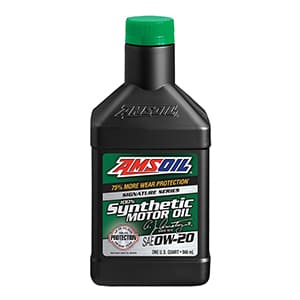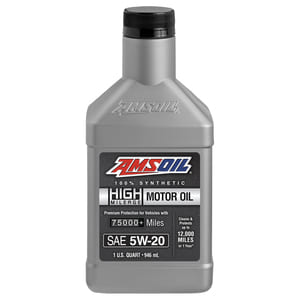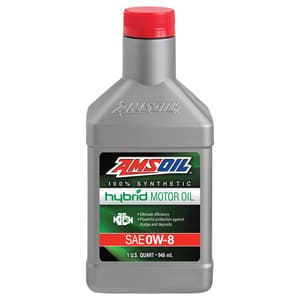What is synthetic engine oil made of? Many drivers ponder this question as they seek optimal performance and protection for their vehicles. Synthetic oil, unlike conventional oil, isn’t just refined crude but is made from chemically modified compounds. Starting with base oil extracted from crude, this base undergoes further chemical reactions to enhance its properties. The result is a high-performance synthetic base stock that provides superior engine protection, longer oil change intervals, and better performance under extreme conditions. Understanding the intricate process behind synthetic engine oil helps consumers make informed decisions for maintaining their engines efficiently.
The Basics of Synthetic Engine Oil
Synthetic engine oil is a crucial part of keeping modern engines running smoothly. But have you ever wondered what makes synthetic oil different from regular oil? This section will explore the basic components of synthetic engine oil and why they’re essential for engine performance.

What is Synthetic Engine Oil Made Of?
Synthetic engine oil is made up of two main components: base oils and additives. Unlike conventional motor oils, which are refined directly from crude oil, synthetic oils undergo a more rigorous process to ensure higher performance and better protection for your engine.
Base Oils
The primary ingredient in synthetic oil is the base oil, which makes up about 70-80% of the final product. These base oils are not just refined crude oil but are chemically engineered to have better properties. Think of it like transforming a raw diamond into a polished gem. Here’s how it happens:
Extraction and Refining: The process starts with extracting crude oil from deep underground. The crude oil is then refined to separate base stocks.
Chemical Transformation: Unlike regular oils, synthetic base oils go through a series of chemical processes to modify their molecular structure. This transformation ensures the base oil is more stable and can perform better under extreme conditions.
Consistency and Purity: Synthetic base oils are designed to be more consistent and pure. They contain fewer impurities, which means fewer deposits and sludge in your engine.
Additives
Additives make up the remaining 20-30% of synthetic engine oil. These additives are key to enhancing the oil’s performance and protecting your engine.
Detergents: Keep the engine clean by preventing sludge and deposit formation.
Anti-wear Agents: Form a protective layer on engine parts to reduce wear and tear.
Antioxidants: Prevent the oil from breaking down at high temperatures.
Friction Modifiers: Enhance fuel efficiency by reducing friction between moving engine parts.
Viscosity Modifiers: Ensure the oil remains effective over a wide temperature range.
Synthetic engine oil is like a well-orchestrated symphony, with each component playing its part to create a performance that far exceeds the sum of its parts. The result is an oil that provides superior engine protection, better fuel efficiency, and longer life compared to conventional oils. So, next time you think about what is synthetic engine oil made of, remember it’s a precise blend of advanced base oils and high-performance additives.

The Process of Creating Synthetic Engine Oil
Synthetic engine oil, renowned for its superior performance and longevity, undergoes a meticulous creation process. This advanced lubricant starts its journey from the depths of the earth and becomes a vital component ensuring our engines run smoothly. Let’s explore how synthetic motor oil is made, breaking it down into key steps.
Extracting and Refining Crude Oil
The journey of synthetic oil begins with the extraction of crude oil from deep underground. This crude oil is a complex mixture, housing various hydrocarbons and other components.
Refining Process:
Extraction: Crude oil is pumped from the ground using advanced drilling techniques.
Heating: The extracted oil is heated in large furnaces, initiating the separation process.
Gasoline
Diesel
Kerosene
Base oils (the primary component for lubricants)
This distillation process ensures that the essential base oils are isolated for further refinement. These base oils are critical as they make up about 80% of synthetic oil.

Base Oil Production and Properties
Base oils are the backbone of synthetic engine oil, and their properties significantly influence the oil’s performance.
Producing Base Oils:
Further Refinement: The isolated base oils undergo further chemical modifications. This step is more rigorous than in producing conventional oils.
Pure Hydrocarbons: These modifications result in highly pure hydrocarbons. This purity ensures uniformity and stability, key factors for high performance.
Properties of Base Oils:
Uniformity: Unlike conventional oils, synthetic base oils have a uniform molecular structure. Think of it like having perfectly shaped building blocks versus irregular ones.
Improved Performance: This structure provides superior engine protection, reduces friction, and enhances overall efficiency.
Resistance to Breakdown: Synthetic base oils can withstand high temperatures and extreme conditions better, ensuring longer oil change intervals.
In conclusion, the process of creating synthetic engine oil transforms crude oil into a finely-tuned engine lubricant. This journey from extraction and refining to creating high-quality base oils highlights the intricate steps needed to produce an oil that can keep up with today’s demanding engines.

The Molecular Transformation in Synthetic Oil
Synthetic engine oil is known for its high performance and durability. But what exactly goes into making this superior product? The secret lies in the molecular transformation that synthetic oils undergo during production. This section explains how synthetic oils are engineered to create high-performance molecules.
Creating High-Performance Molecules
Synthetic oils involve a series of chemical reactions to produce molecular structures that are more uniform and stable than those found in conventional oils. The process starts with the base oil, which constitutes about 80% of the final product. This base oil is not just refined; it’s engineered to enhance its properties.
Chemical reactions are used to break down the crude oil molecules and then rebuild them into more beneficial forms. This restructuring results in molecules that are consistent in size and shape. Why does this matter? Because uniform molecules perform better.
Here are some benefits of these high-performance molecules:
Consistent Performance: The uniform molecular structure helps synthetic oils maintain their viscosity and protect the engine under various conditions.
Better Lubrication: The uniform size of the molecules reduces friction and wear, providing superior lubrication.
Increased Stability: The engineered molecules are more stable, meaning they are less likely to break down under heat and pressure.
So, by transforming the molecular structure, synthetic oils can offer enhanced protection and extended performance compared to conventional oils. This makes synthetic oils the preferred choice for modern, high-performance engines.
Understanding the molecular transformation in synthetic oil helps you appreciate its superior qualities and why it’s often worth the investment for your vehicle.

Comparing Synthetic and Conventional Oils
Choosing the right engine oil is crucial for keeping a car running smoothly. While both synthetic and conventional oils serve the same basic purpose, they differ in composition, performance, and overall benefits. Understanding these differences can help car owners make informed decisions for their vehicles.
Advantages of Synthetic Engine Oil
Synthetic engine oil offers several significant benefits over conventional oil. Here are some main advantages:
Better Engine Protection
Synthetic oil is engineered to protect an engine better than conventional oil. It forms a stronger film around engine parts, reducing wear and tear. This means vital components like pistons and camshafts are shielded from damage, ensuring a longer lifespan for the engine.
Longevity
One of the standout perks of synthetic oil is its longer lifespan. Unlike conventional oil, which can break down faster under high temperatures and heavy loads, synthetic oil remains stable. This translates to fewer oil changes, saving time and money.

Performance in Extreme Conditions
Whether it’s freezing cold or scorching hot, synthetic oil performs consistently. It flows more easily at low temperatures, ensuring quick starts in the winter. Similarly, in high heat, it resists thinning out, maintaining its protective qualities.
Cleaner Engines
Synthetic oils contain fewer impurities compared to conventional oils. This means they are less likely to form sludge and deposits within the engine. A cleaner engine runs more efficiently and has fewer issues over time.
Fuel Efficiency
Due to their ability to reduce friction, synthetic oils can improve fuel efficiency. While the difference might not be dramatic, every little bit helps when it comes to saving on gas.
In summary, synthetic engine oil provides more robust protection, lasts longer, performs better in extreme temperatures, keeps engines cleaner, and can even boost fuel efficiency. These benefits make it a wise choice for those looking to get the most out of their vehicles.
Conclusion
Understanding what synthetic engine oil is made of highlights the advanced science behind its creation. Synthetic engine oil starts from crude oil but undergoes more complex refining and molecular transformation processes. The result is a high-performance product that offers superior engine protection, longer oil change intervals, and better performance in extreme conditions.
For optimal engine care, knowing the composition of synthetic engine oil emphasizes its benefits over conventional oil. Choosing synthetic oil ensures your engine runs smoothly and efficiently, making it a preferred choice for many vehicle owners seeking the best care for their engines.
For reliable information on premium AMSOIL synthetic lubricants, visit bestengineoilintheworld.com.

![Featured image for "What Is Synthetic Engine Oil Made Of? [Updated 2024]" blog post. Refinery.](https://bestengineoilintheworld.com/wp-content/uploads/2024/07/refinery-compressed.jpg)